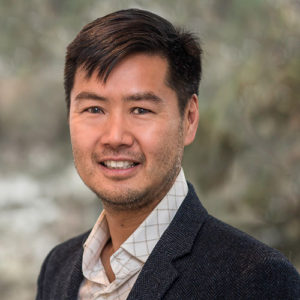“Problems cannot be solved by the same level of thinking that created them”. – Einstein
The most powerful question we can ask in medicine is “Why?” Why did this particular person get this form of illness at this particular point in time? This is the question we need to be asking more in the practice of modern medicine.
We are facing an epidemic of chronic disease around the world. Over 70% of the disease burden now comes from chronic disease, not infections or trauma. Despite all the money being spent on drugs, procedures and surgery, the incidence of chronic disease continues to rise.
We need, more than ever, a new paradigm in medicine that focuses on prevention and looks closely at the root causes of illness rather than simply treating the end manifestations of end-organ disease.
We need a new medicine that looks at the person as an integrated whole – mind, body and spirit; appreciates our biochemical individuality; understands that most chronic disease arises from imbalances that result from a mismatch between our genes and the environment. In other words, lifestyle.
We need a model that reflects the new science emerging from the genomic revolution, in particular, epigenetics. What we are learning from epigenetics is that our genes are not our destiny – they are not a fixed blueprint. What actually manifests as structural components of our body and the biochemical machinery that runs everything, depends largely on what genes get translated (what gets turned on or off).
How our genes get translated is a result of interactions with the environment. This means how we live each and every day (the food we eat, the way we move, breath and interact with the world) determines how our genes get expressed. Our phenotype (the actual expressed genome) can be quite different than your genotype (DNA code). This is an incredibly complex and brilliant system that allows the organism to adapt continuously to a changing environment.
We need to realize that the naming and classification system of diseases helps us match signs and symptoms to a diagnosis, and then to a corresponding treatment, but it doesn’t mean that we understand the root cause of the problem. In fact, we don’t know the root causes of many chronic diseases.
For acute illness caused by an acute infection or injury, the root cause is fairly clear. But the root causes of a disease that take many years to develop –sometimes decades (long latency), that result in myriad of symptoms in different organ systems – is much more difficult to ascertain. Our current tools in our “medicine toolbox” are great for acute trauma and illness, but not as good for long latency, complex chronic disease.
The principles of functional medicine are as follows:
- It uses a systems-based approach that looks for root causes of illness and imbalances in core physiological processes, rather than focus on treating symptoms.
- It works “upstream” rather than “downstream” by looking for patterns of dysfunction before they manifest into disease, if possible.
- It looks at the person as an integrated whole – mind, body and spirit.
- It recognizes that everyone is biochemically and physiologically unique. There is no one-size-fits-all treatment so the treatment is personalized.
- It recognizes that chronic disease arises from the interactions between our genome and environment. It uses lifestyle as prevention and treatment by focusing very carefully on nutrition, exercise, sleep, stress reduction and our relationship with ourselves, others and the world.
- It integrates best practices from conventional biomedicine with other modalities like natural medicines ie. (Naturopathy), Traditional Chinese Medicine, Registered Massage Therapy, Chiropractic, mind/body therapies (yoga, meditation), etc.
What we need is a new paradigm that understands that we are inter-connected to everything – on both a physical and energetic level. Our cells are part of tissues, which are part of organs, which are part of organ systems, which work together to form our whole person. The person is part of a community, which is part of an ecosystem, which is part of the biosphere. A holistic, deeply conscious systems-based approach is really the only way forward if you understand this.
It is my sincere hope that we continue moving in this direction. This is why Connect Health Centre for Integrative + Functional Medicine was created.
Share this Post

